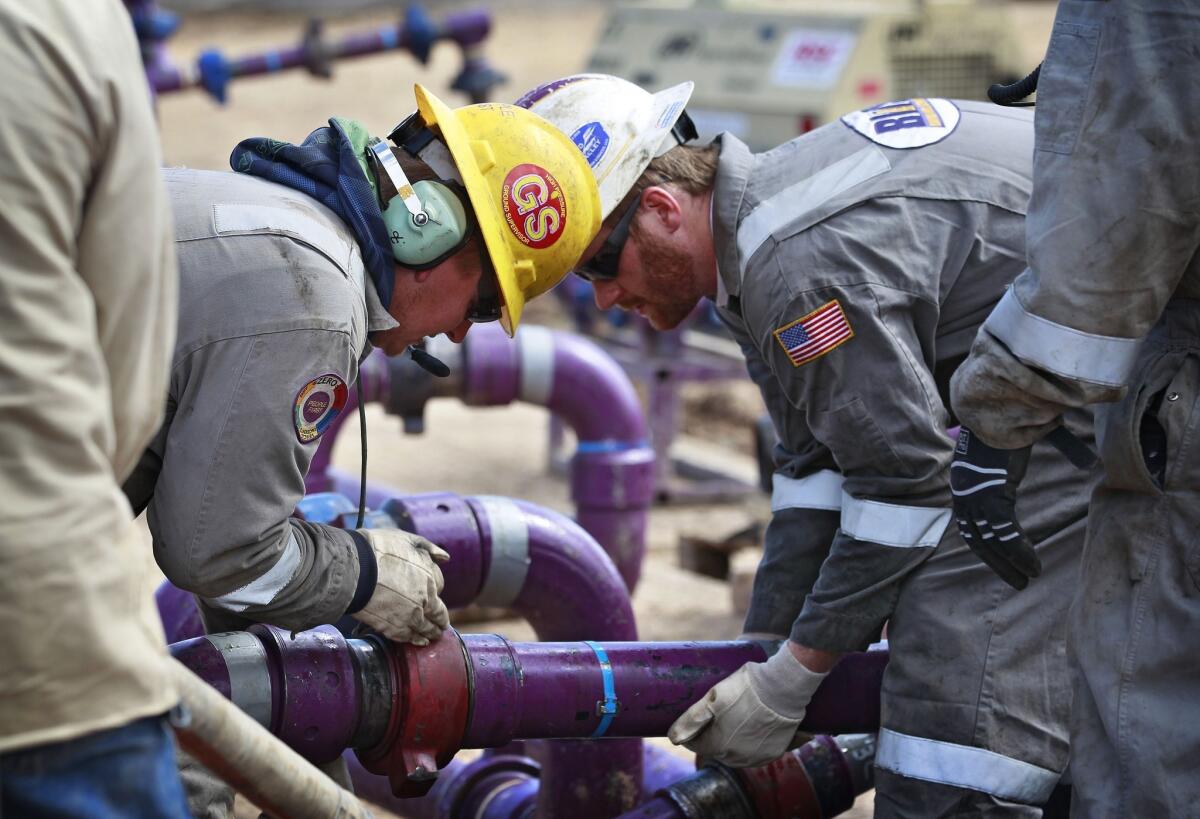Petroleum group says fracking helped reduce greenhouse gas emissions

- Share via
The American Petroleum Institute said hydraulic fracturing, or fracking as it is sometimes called, contributed to a 3.4% drop in greenhouse gas emissions in 2012, the trade group said in a statement.
The U.S. Environmental Protection Agency on Tuesday issued a report that found that greenhouse gas emissions dropped 3.4% in 2012 compared with the year before. The nation released the equivalent of 6,526 million metric tons of carbon dioxide in 2012, the lowest level since 1994. About 82% of greenhouse gas emissions in 2012 were carbon dioxide, the main pollutant causing climate change.
The decline, environmental regulators said, was driven mostly by a switch to natural gas from coal by power plant operators. It also credited improvements in fuel efficiency for transportation and a warmer winter, which reduced demand for heating.
Photos: Top 10 Southern California companies
“America is leading the world in reducing greenhouse gases thanks, in part, to the revolution in natural gas production,” said the American Petroleum Institute’s spokesman Zachary Cikanek. “Innovations in hydraulic fracturing and horizontal drilling have helped make the U.S. the largest producer of natural gas in the world, and these technologies are a great example of how we can grow the economy, create jobs and protect the environment.”
Since 2005, greenhouse gas emissions have declined 10%. The U.S. is using 2005 benchmark levels as a starting point for its overall greenhouse gas reduction goal, which is to cut emissions by 17% by 2020.
Fracking, which has been used for decades and led to a natural gas boom in North Dakota, is a controversial process that involves injecting large volumes of chemical-laced water and sand deep into the ground to break apart rock and release oil. Democrats in California’s Assembly have introduced measures to impose a moratorium on fracking. New York has had a similar ban since 2008.
More to Read
Inside the business of entertainment
The Wide Shot brings you news, analysis and insights on everything from streaming wars to production — and what it all means for the future.
You may occasionally receive promotional content from the Los Angeles Times.











